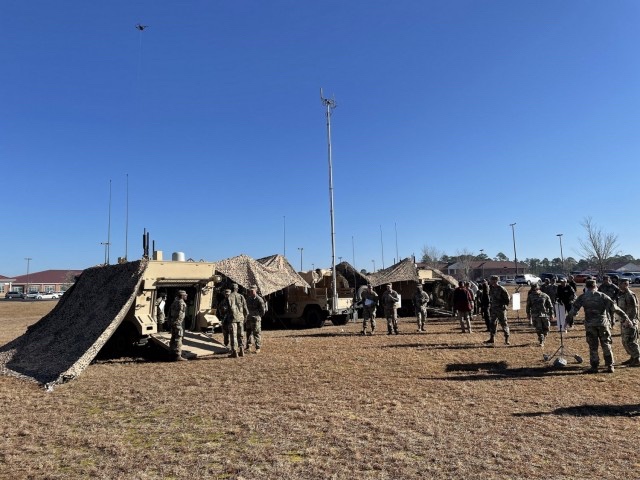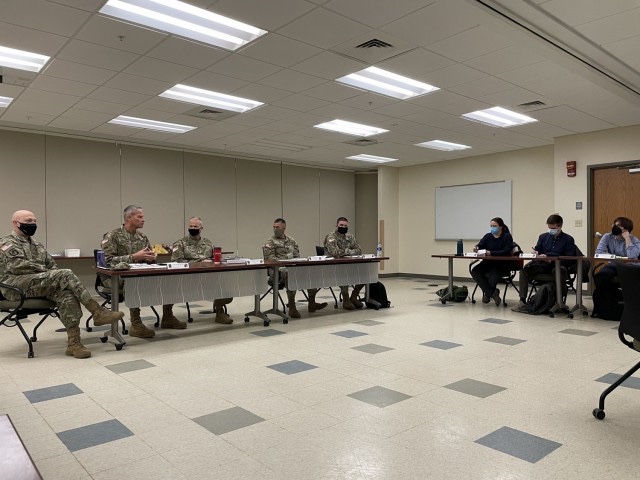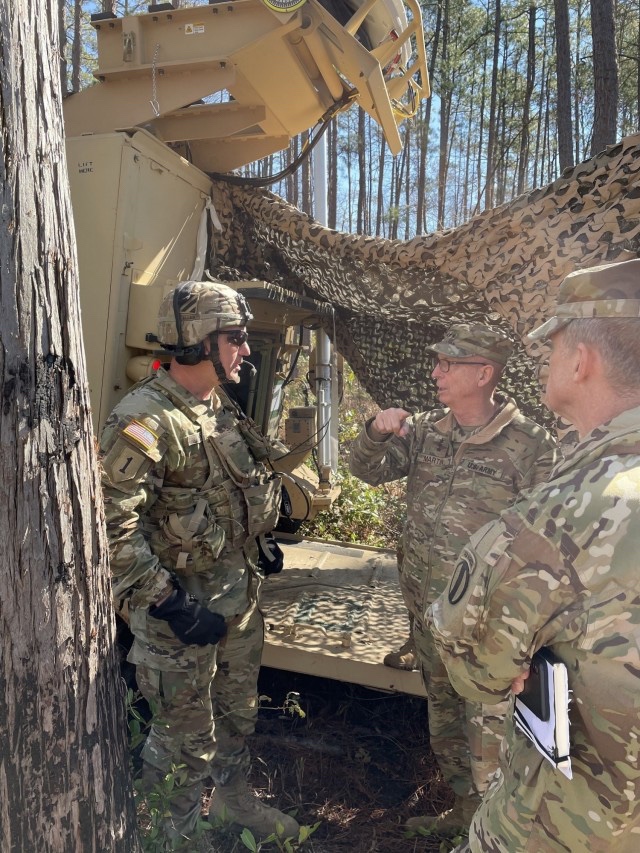FORT STEWART, Ga. – The “Spartan Brigade,” 2nd Armored Brigade Combat Team, 3rd Infantry Division, showcased the U.S. Army’s Armored Formation On-The-Move Network Pilot on Feb. 8-9 at Fort Stewart. The pilot was in its third and final week when the unit and Army stakeholders conducted a corresponding media day and distinguished visitors day, where they exhibited three equipment sets that leveraged satellite and line-of-sight commercial network prototypes from over 20 industry partners.

Each equipment set enabled different combinations of network communications, both on the move and at the quick halt, to enhance command and control for distributed and dispersed operations and survivability and lethality.
“We know on the future battlefield you have to fight dispersed and distributed,” emphasized Maj. Gen. Charles D. Costanza, Commanding General, 3rd Infantry Division and Fort Stewart. “Even the brigade tactical operations center set up out here [for this pilot], which is scaled way down, is still too big, and so this capability would enable us to fight more distributed and dispersed. And then with the future modernization efforts we are doing with vehicles, for example AMPV [Armored Multi-Purpose Vehicle], you put those two capabilities together, I think this is really going to improve our ability to fight and survive on the future battlefield.”

Each week of the pilot a different Spartan Brigade battalion stressed and assessed one of the equipment sets in realistic brigade-designed mission threads, during and after which the Army garnered Soldier feedback and assessment data.
“One of our primary modernization focus areas is really about the network and how we enable the future fight through speed, range and convergence,” said Maj. Gen. Robert M. Collins, Program Executive Officer for Command, Control, Communications-Tactical.

During the media day, a handful of Washington reporters from defense and technology news outlets and a regional news station visited on Tuesday, Feb. 8 to ask questions and talk to Soldiers and Army network acquisition and fielding leaders about the different equipment sets. The following day, modernization stakeholders from various U.S. Army program executive offices, cross-functional teams, training and doctrine commands, science and technology organizations, and additional Army senior leaders had a similar opportunity to talk to Soldiers as well as exchange ideas on the network modernization of armored formations.
The media and distinguished visitors first spoke to Soldiers at a static display that highlighted two of the equipment sets and then rode out to the training area to talk to Soldiers employing the third equipment set.

“They [the Soldiers] truly got to assess each of the equipment sets,” said Col. Terry R. Tillis, commander of the “Spartan Brigade,” 2nd ABCT, 3rd ID. “At the end of the day, if we can’t integrate with current capabilities, and it’s not simple enough for our end user, it is something we don’t want. But the general feedback we have received [is that] it’s easy to use, it is expeditionary, and allows us to keep a much smaller command post signature, which will help us increase our survivability.”

The Soldier feedback combined with qualitative and quantitative assessment data will inform the Army’s Capability Set 25 armored formation network design and concept from the division to the battalion level. The final armored formation OTM network solution set will enable more effective and less predictable offensive and defensive operations and will increase the lethality of the Army’s armored units.
By CPT Sean Minton


Captain Minton,
DO you know if they had the new AMPVs out there with them?
IOTE – OPNET @ Fort Stewart underway, just wondering if this was related or part of that.
Thank you sir.
Dan